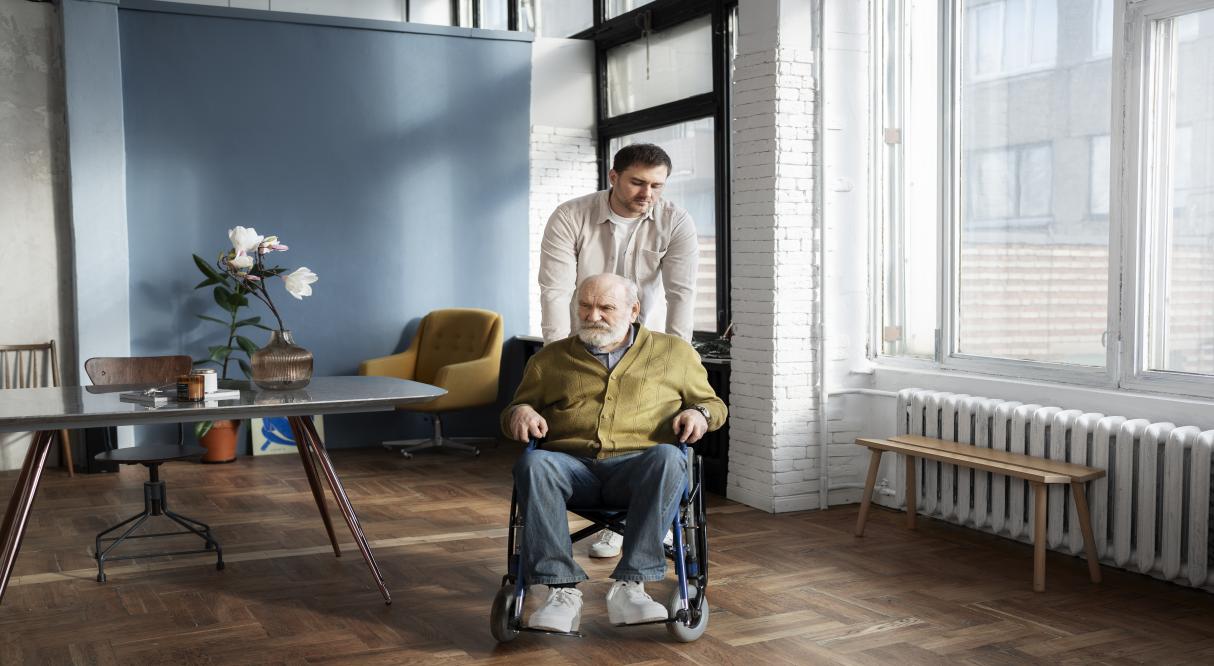Key Takeaways
- Disability home care protects independence and autonomy.
- Services are for both mild and complex needs.
- NDIS makes home care accessible and affordable.
- Support workers are trained and qualified.
- Care focuses on confidence and skill-building.
Common Misconceptions About Disability Home Care
Disability home care in Australia is often misunderstood, leading to hesitation in seeking support. Misconceptions can create unnecessary fear about cost, independence, or eligibility. In reality, professional home care is designed to promote dignity, flexibility, and empowerment. Understanding the facts helps individuals and families make informed choices.
Misconception 1: Disability Home Care Removes Independence
A widespread assumption is that home care reduces personal freedom. Many believe that relying on assistance means losing decision-making power in daily routines.
The Reality
- Home care is designed to enhance independence rather than limit it. Instead of taking over daily tasks, support workers provide guidance and assistance that allow individuals to remain in control of personal routines.
- Individuals have the freedom to decide what kind of support is required and when it is delivered. Care plans are tailored to personal preferences, ensuring that every aspect of assistance aligns with lifestyle choices.
- Plans remain flexible and are built to protect personal choice. As needs evolve, adjustments can be made without compromising autonomy.
- Services are centred on encouraging active participation in community and family life. With the right support, individuals can continue attending social activities, managing household responsibilities, and maintaining meaningful connections.
Misconception 2: Home Care is Only for Severe Disabilities
Some people assume that only those with serious or complex disabilities can access services. This belief discourages those with mild or moderate challenges from seeking help.
The Reality
- Home care caters to a wide spectrum of needs, ranging from light support to complex care. It is not reserved only for severe disabilities but extends to individuals who may need occasional or part-time assistance with day-to-day activities.
- Services can include domestic help, transport, social engagement, and personal routines. Whether it is preparing meals, getting to appointments, or participating in local events, support is tailored to fit individual requirements.
- Even small levels of support can make a significant difference to lifestyle quality. For example, having help with weekly shopping or cleaning can free up time and energy to focus on health, hobbies, and personal goals.
- Community participation programs provide valuable opportunities to stay connected and active. These programs enable individuals to join social groups, engage in recreational activities, and remain an active part of the local community.
Misconception 3: Home Care is Too Expensive
The cost of disability support is often viewed as unaffordable. This misconception prevents families from exploring available options.
The Reality
- The National Disability Insurance Scheme (NDIS) ensures that disability home care is affordable and accessible. It provides funding for a wide range of supports, allowing individuals to receive assistance without carrying the full financial burden.
- Services can be tailored to suit both budget and lifestyle preferences. Support plans are flexible, meaning that individuals and families can choose the type and frequency of care that aligns with financial situation and daily routines.
- With careful planning, families often discover that home care is more cost-effective than alternatives such as residential or full-time institutional care. By receiving targeted support at home, unnecessary expenses are reduced, while independence is preserved.
- Financial assistance through the NDIS covers a broad spectrum of needs, including personal care, therapies, community activities, and even home modifications. This comprehensive coverage ensures that support extends beyond daily tasks, contributing to long-term well-being and quality of life.
Misconception 4: Care Workers Lack Professional Training
Some worry that support workers are not sufficiently qualified to provide safe and reliable assistance.
The Reality
- Registered providers are required to follow strict compliance and training standards. This ensures that every support worker meets professional requirements and delivers services that align with national regulations and best practices.
- Workers go through background checks, structured training, and continuous skill development. These steps safeguard the well-being of individuals and provide reassurance that services are delivered with competence and accountability.
- Professional staff are trained not only in providing direct assistance but also in supporting overall well-being and independence. This includes encouraging skill development, promoting healthy lifestyles, and creating opportunities for social engagement.
Misconception 5: Home Care Creates Dependency
Families often fear that long-term care may encourage reliance and reduce self-confidence.
The Reality
- Disability home care is specifically designed to promote skill-building, not dependency. The focus is on equipping individuals with the tools and guidance needed to carry out daily tasks, while gradually strengthening independence.
- Support workers guide individuals through activities rather than doing everything on behalf of the person. This approach ensures that people stay actively involved in routines and continue to develop practical skills.
- Encouragement of daily routines builds long-term confidence in essential areas such as meal preparation, personal care, and independent travel. By practising these tasks with support, individuals gain the assurance to manage such activities independently.
- Over time, individuals develop stronger independence and personal responsibility. With consistent encouragement and structured guidance, home care becomes a pathway to self-reliance rather than a source of dependency.
Conclusion
Misconceptions about disability home care often stand in the way of individuals accessing the right support. The reality is that professional services create independence, confidence, and dignity. At Prime 1 Care, the focus is on affordable, flexible, and empowering care tailored to each person’s unique journey. Contact us today to discuss personalised disability home care solutions designed for your needs.
FAQs
1. What does disability home care include?
It may include personal support, domestic help, transport, therapies, and community participation, depending on the individual plan.
2. Is disability home care covered under the NDIS?
Yes. The NDIS funds a broad range of supports, from daily routines to specialised therapies.
3. How flexible is home care?
Plans are highly flexible and can be adapted as needs and circumstances change.
4. Are support workers qualified?
Accredited providers ensure that all workers meet professional training and compliance standards.
5. Can home care be provided on a short-term basis?
Yes. Services may be temporary or ongoing, based on what best suits the individual.
6. How do I choose the right provider?
Look for registered providers with transparent pricing, strong compliance, and a reputation for personalised care.






